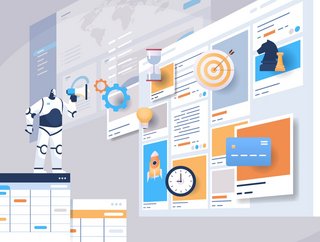Solving procurement challenges with the help of AI

Artificial intelligence is already transforming procurement and as it can help with data analytics it is an essential tool as businesses look to their datasets for insight to support decision making.
Data is one of the most valuable assets for businesses today - even in procurement - as, without accurate or sufficient data, procurement teams would stumble upon challenges regarding spending and supplier relations.
Additionally, for most procurement teams, purchasing decisions tend to be made in a scarcity environment. AI algorithms can help teams make better decisions from their data as it provides data insight - a survey from Deloitte found 51% of CPOS reported their use of advanced analytics and 25% had piloted an AI solution for the procurement process, a 19% increase from the previous year.
Research by Harvard Business Review and Deloitte found that although different organisations have their own challenges and successes, there are some key trends with AI and procurement highlighting how the technology can bring value:
- Making better decisions
- Identifying new opportunities
- Improving operations
- Automating manual tasks
- Freeing up time
- Capturing or applying scarce knowledge
- Identifying new suppliers or markets
- Optimising supplier relationships
To take a closer look at how AI technology can solve different challenges in procurement, we look at three different applications of the technology and its benefits.
AI and enhancing strategic sourcing
When applied in procurement, AI can be used to manage and automate sourcing. Cognitive sourcing can help buyers and procurement teams to identify new opportunities or automate non-strategic sourcing activities. One example of a cognitive sourcing solution is a chatbot.
AI can help highlight the insights hidden in data, enabling sourcing and procurement teams to validate or clarify their assumptions, inform decisions, and chart new paths into better and more strategic sourcing plans.
Automating with AI: manual tasks and error detection in procurement
Understandably, there are some errors that humans will miss, but AI can step in and ensure that these errors are flagged in the procurement process. The technology has the ability to automatically detect errors or anomalies such as price changes in markets, compliance irregularities and fraud.
Machine learning algorithms are essential to ensure errors do not go missed, and they can also help to surface any relevant insights to better inform teams. However, automation can do more than automatically inform teams of errors and anomalies, it can also automate repetitive manual tasks, freeing up the teams' time.
The technology has the ability to automate a number of time-consuming tasks within the procurement process such as invoice processing and the procure-to-pay process which can cost the team a significant amount of time.
Managing risk and interruptions with AI in procurement
A very strong application of AI in procurement is its ability to manage supplier risk. AI has the ability to accurately and quickly identify unexpected or sudden changes with a supplier or a vendor. Then, the technology can alert procurement teams whether this change will increase or decrease the risk.
As it is traditionally a reactive process, AI supports teams as they aim to remove any high-risk suppliers - with AI, procurement teams can avoid issues with a longer than necessary relationship with suppliers who bring challenges.
Additionally, AI can reduce interruptions caused by one-off purchases as it can process high volumes of transactions without errors. Typically, a one-off purchase can interrupt a procurement process, but AI can ensure that the process runs smoothly despite this one-off purchase.






